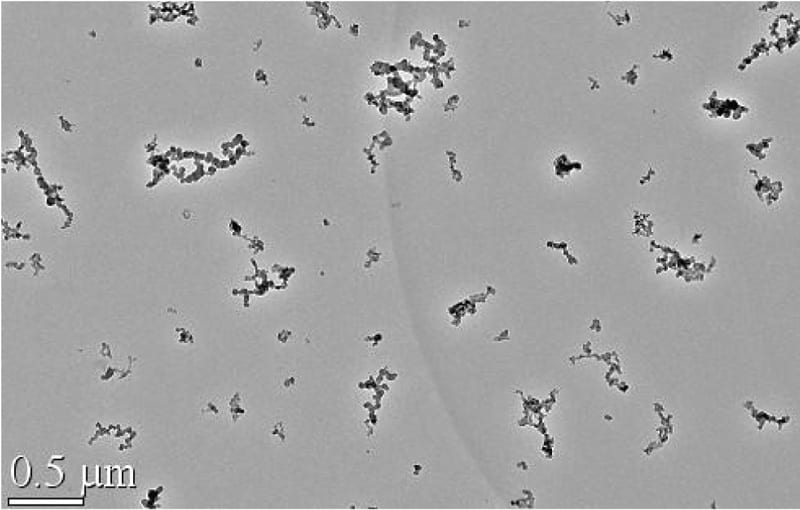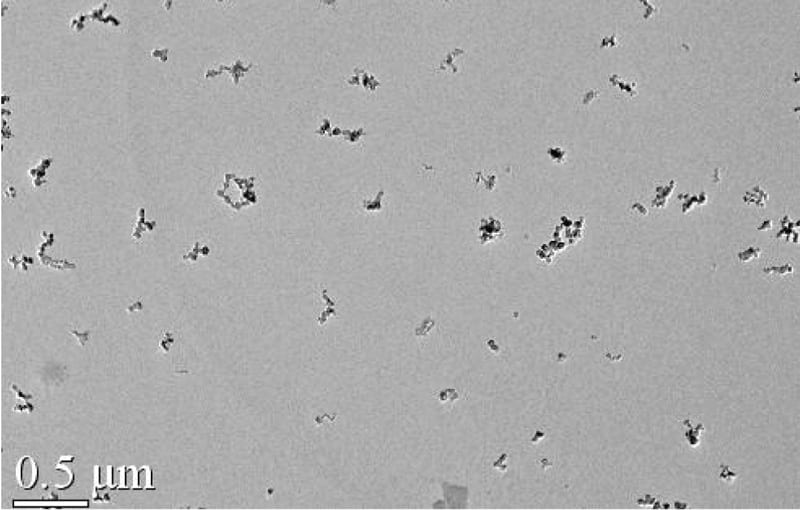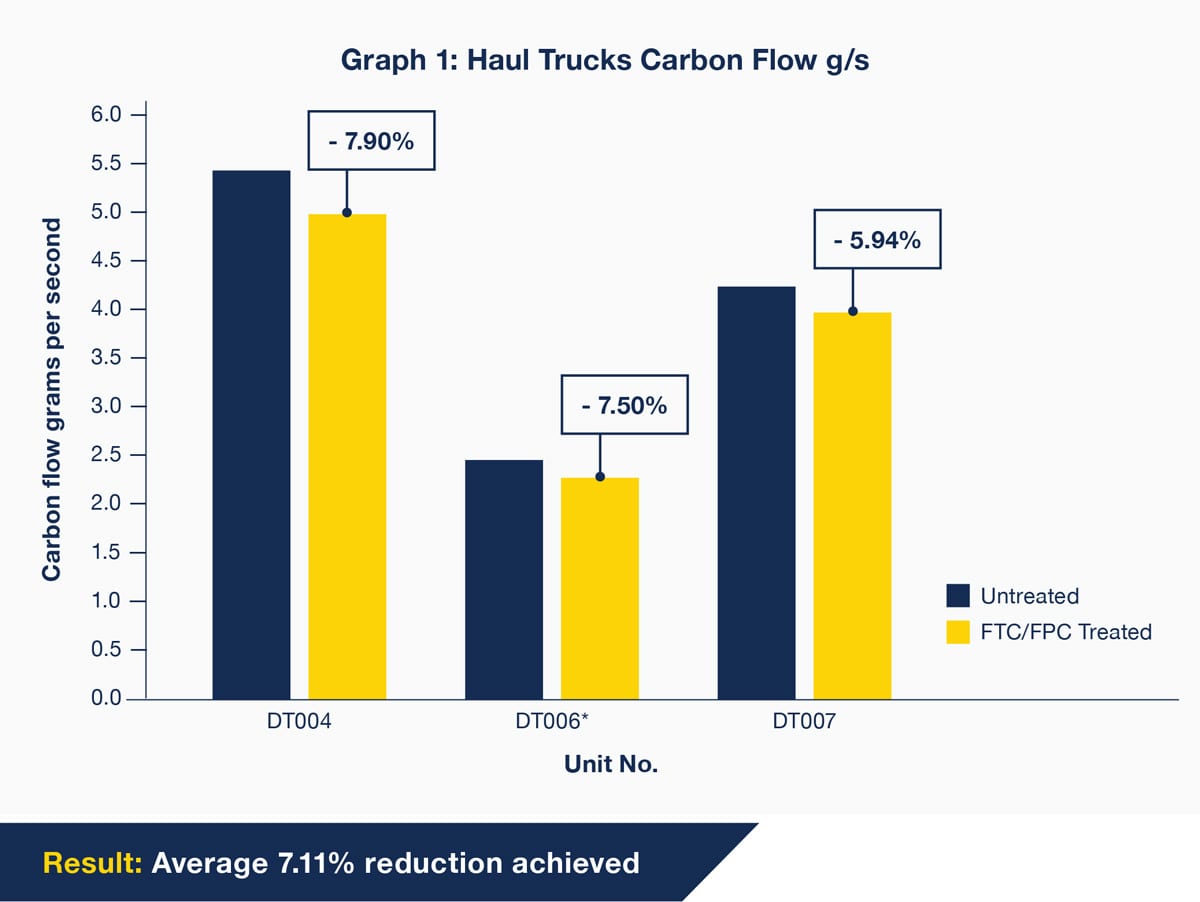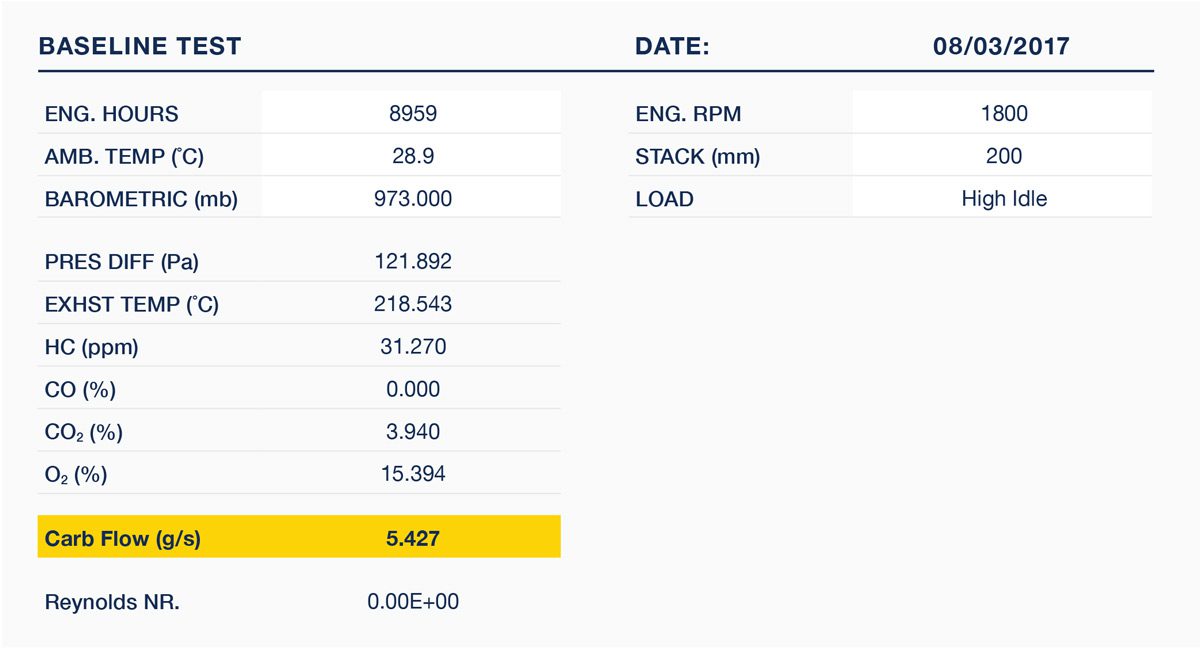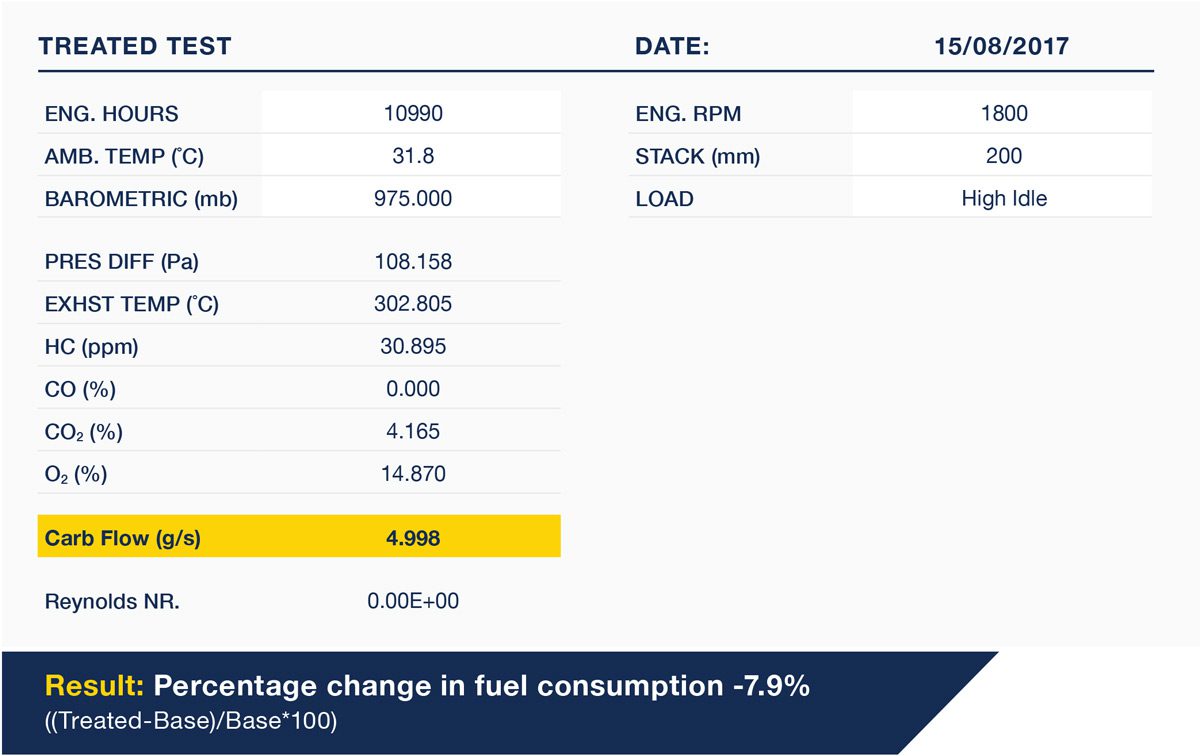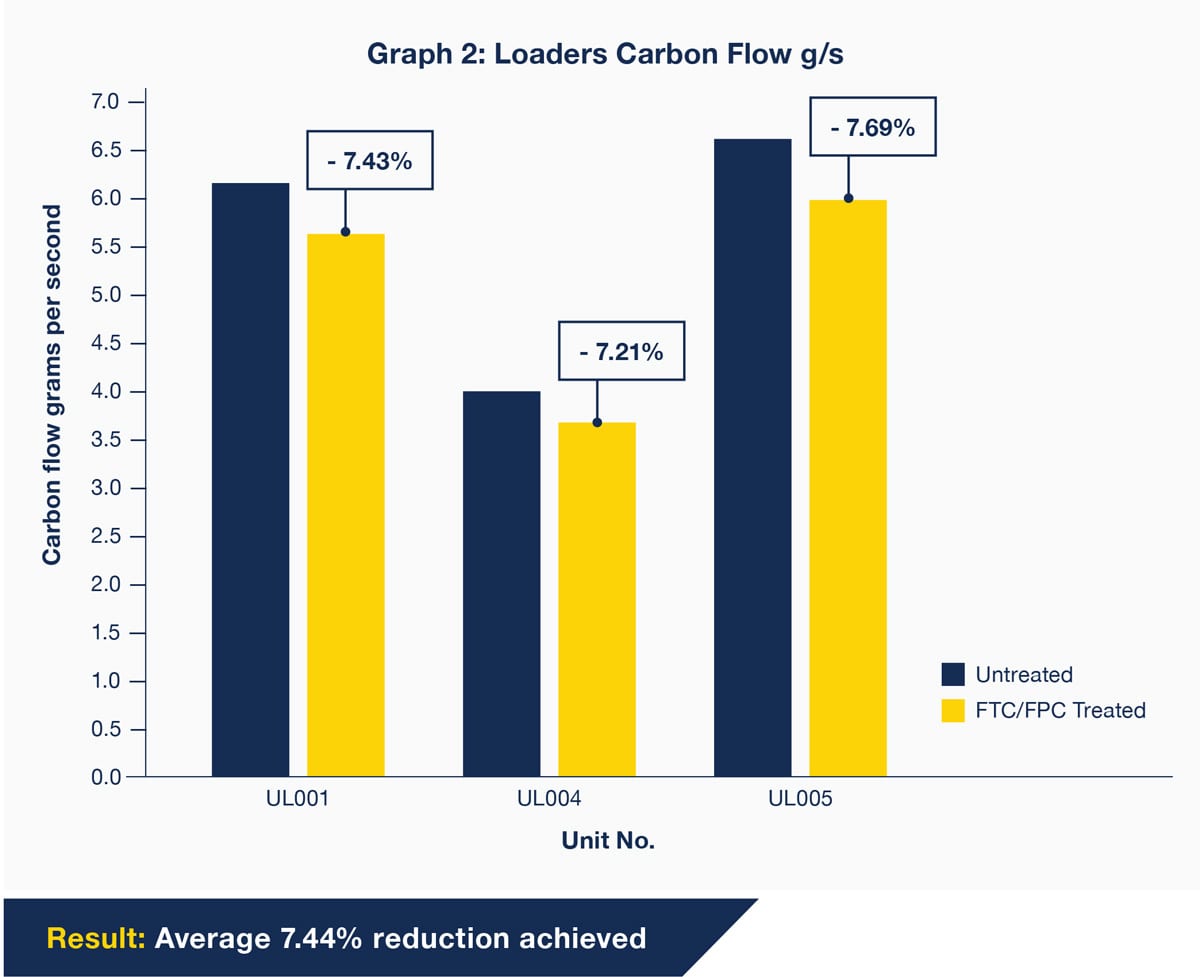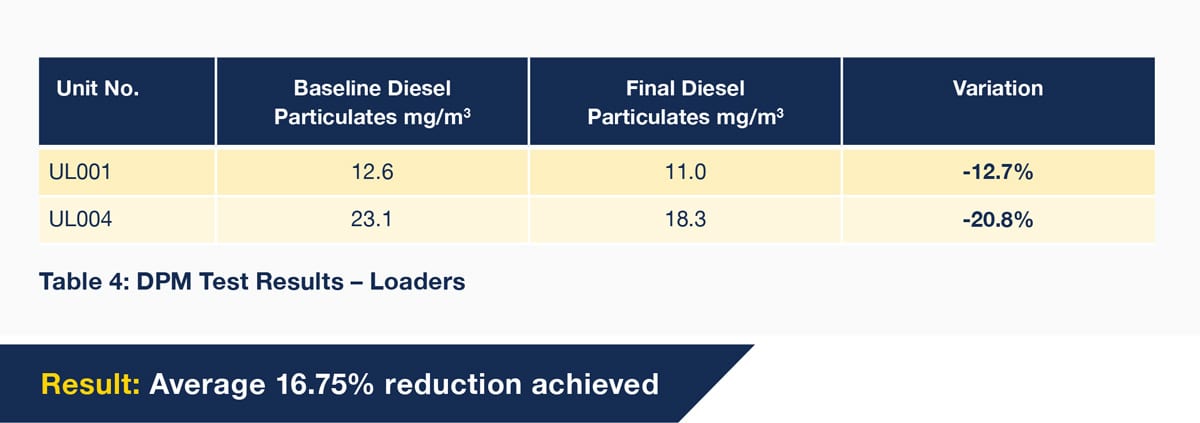Fuel efficiency and emission reduction trial
FTC/FPC Combustion Catalyst
Queensland Underground Gold Mine
Final Report 2017
Introduction
FTC/FPC Combustion Catalyst, manufactured and supplied by Cost Effective Maintenance, has been tested and proven to reduce fuel consumption by up to 10% under varying load conditions while reducing carbon emissions and Diesel Particulate Matter (DPM). The addition of FTC/FPC results in improved combustion, allowing more of the energy from diesel to be converted to motive energy rather than being wasted as unburnt hydrocarbons exiting the exhaust or building up as abrasive hard carbon deposits within the engine.
Cost Effective Maintenance continues to subject FTC/FPC to independent scientific testing. While engine design advancements have resulted in improved efficiency, FTC/FPC still provides additional efficiencies. This is because it acts on the combustion process itself, by catalysing the series of combustion reactions. So, regardless of the age, size or type of engine, or the specifications of the fuel, FTC/FPC use always results in a reduction in both fuel consumption and emissions.
More recently, the most comprehensive independent study ever conducted on FTC/FPC was completed. This rigorous four-year study was conducted at the University of Western Australia – Centre for Energy and was predominantly funded by the Australia Research Council. World renowned expert in the field of combustion Professor Dongke Zhang was commissioned to investigate the potential of FTC/FPC Combustion Catalyst in reducing the carbon footprint of Australian industries.
Results released by the Centre for Energy UWA following extensive Laboratory and Dynamometer tests provided further evidence of significant reductions in:
- Exhaust particulates reduced by up to 39% and
- Greenhouse gas emissions Reduced by up to 22%.
- Fuel consumption reductions in the region of 2.4% to 4.2% at variable loads in as-new engines following the introduction of FTC/FPC to diesel fuel was also realised.
Professor Zhang stated that as these tests were conducted on as-new engines under controlled conditions, greater savings can be expected in the field.
Tests
Baseline fuel efficiency tests were conducted on three haul trucks. Test methods included Carbon Mass Balance (CMB) and Diesel Particulate Matter (DPM) testing. Following baseline tests, a trial purpose fuel tank was provided with an automated dosing system installed allowing FPC treatment of the three test trucks to commence. Treated tests were then conducted.
- Baseline test
- Final test at 5 months
Test Methods
The Carbon Mass Balance Measurement (CMB)
CMB is a procedure whereby the mass of carbon exiting the exhaust is calculated as a measure of the fuel being burned. The elements measured via a TESTO five gas analyser include the exhaust gas composition, exhaust gas temperature, ambient temperature, exhaust pressure and barometric pressure. All readings together are entered into a calculation which produces a final reading in grams/per second flow of carbon exiting the exhaust.
This formula is derived from the international engineering standard test AS2077-1982 for measuring fuel efficiency. The CMB method is considered a reliable and accurate way to determine the efficiency of an engine, providing a percentage change figure of carbon exiting the engine which relates to carbon entering the engine in the form of fuel.
Diesel Particulate Matter (DPM) Test
DPM testing is conducted with a TSI AVT530 laser photometer instrument and provides a measurement showing mg/m³ of particulate matter exiting the exhaust.
All tests were conducted with engines running at 1800 rpm.
Test Results
CMB Test Results – Haul Trucks
Average efficiency variation over the three haul trucks was a 7.11% reduction in grams/second flow of carbon. (Note: The difference in DT006 carbon flow is attributed to the different exhaust configuration of twin exhausts) *DT006 not tested in August – results shown are from interim test.
DT004 Haul Truck – CMB Results
CMB Test Results – Loader
Average efficiency variation over the three loaders was a 7.44% reduction in grams/second flow of carbon.
DPM Test Results – Haul Trucks
As expected, due to equipment being fitted with particulate filters, readings are too low to contain any real useable data. Past scientific testing has shown large reductions in DPM which in the case of equipment with particulate filters, will result in extended particulate filter life.
DPM Test Results – Haul Trucks
Interestingly, the readings taken from loaders UL001 and UL004 show higher overall particulate levels to begin with, indicating lower engine efficiency or a difference in particulate filter efficiency. These readings allowed a variation to be seen with an average 16.75% reduction in particulates on these two loaders after FTC/FPC treatment.
Conclusion
The engineering standard tests conducted on three haul trucks and three loaders provided evidence of an overall average fuel consumption reduction of 7.27%.
This equates to significant financial savings, reduced carbon emissions and diesel particulates, while also providing ongoing maintenance benefits due to a cleaner, more complete combustion.
To download the full report, click here.

